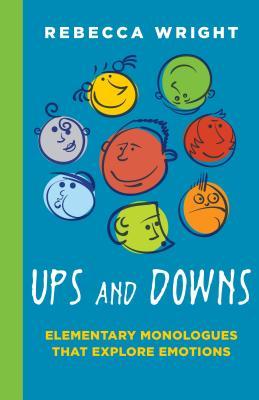This unique book of 100 monologues invites elementary school students to explore a wide range of emotions, developing empathy as well as acting skills. Part I contains 20 monologues that each have two contrasting scenarios which alter the feel of the selection (e.g. You just learned your family is moving out of state. Are you excited or sad?). Part II has 30 pairs of monologues that present the same situation from different points of view (e.g. You're insulted that you and your younger sister have the same bedtime. Your sister is glad that the two of you are treated equally.). Part III includes 20 monologues that provide situations without identifying emotions in order to encourage discussion (e.g. Your mom finally made it to one of your baseball games, but you hit a foul ball through her windshield.). All the monologues in this exciting collection are between one and two minutes long, and a comprehensive list of emotions in the appendix will help kids better clarify their own feelings and empathize with others. Most of the selections are gender neutral, with the rest divided evenly between boys and girls. Elementary-aged students will enjoy the many pieces from their own perspective and will be challenged by others from an older or younger point of view. Not just for the young actor, this book can help any child build stronger relationships with their peers, parents, siblings, and teachers.

Ups and Downs: Elementary Monologues That Explore
This unique book of 100 monologues invites elementary school students to explore a wide range of emotions, developing empathy as well as acting skills. Part I contains 20 monologues that each have two contrasting scenarios which alter the feel of the selection (e.g. You just learned your family is moving out of state. Are you excited or sad?). Part II has 30 pairs of monologues that present the same situation from different points of view (e.g. You're insulted that you and your younger sister have the same bedtime. Your sister is glad that the two of you are treated equally.). Part III includes 20 monologues that provide situations without identifying emotions in order to encourage discussion (e.g. Your mom finally made it to one of your baseball games, but you hit a foul ball through her windshield.). All the monologues in this exciting collection are between one and two minutes long, and a comprehensive list of emotions in the appendix will help kids better clarify their own feelings and empathize with others. Most of the selections are gender neutral, with the rest divided evenly between boys and girls. Elementary-aged students will enjoy the many pieces from their own perspective and will be challenged by others from an older or younger point of view. Not just for the young actor, this book can help any child build stronger relationships with their peers, parents, siblings, and teachers.